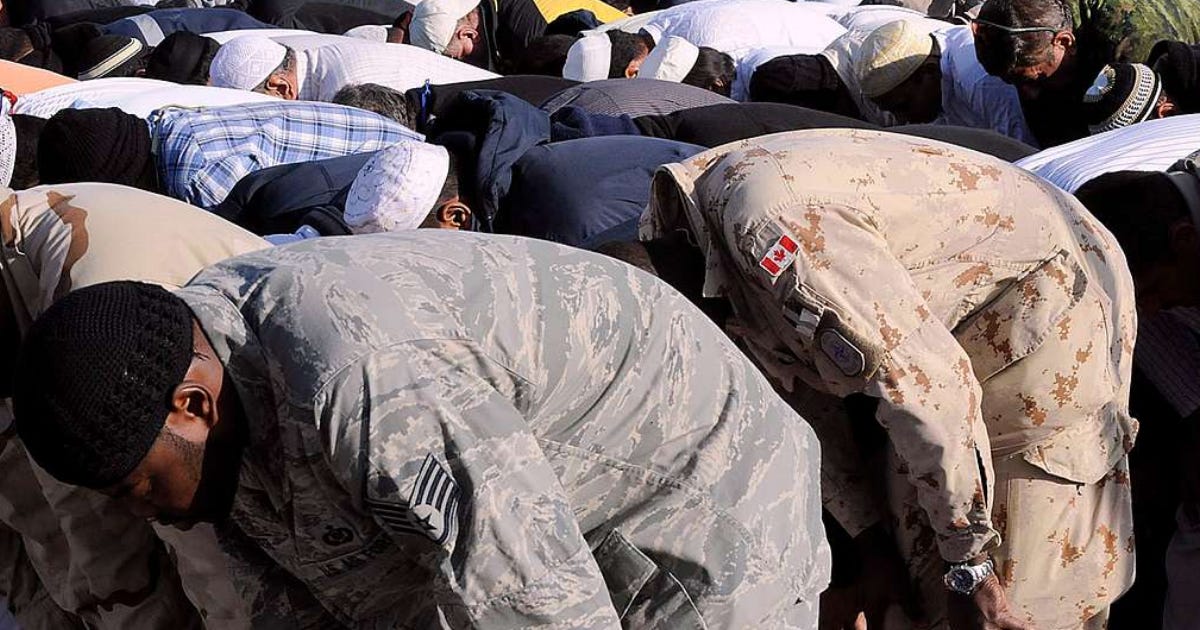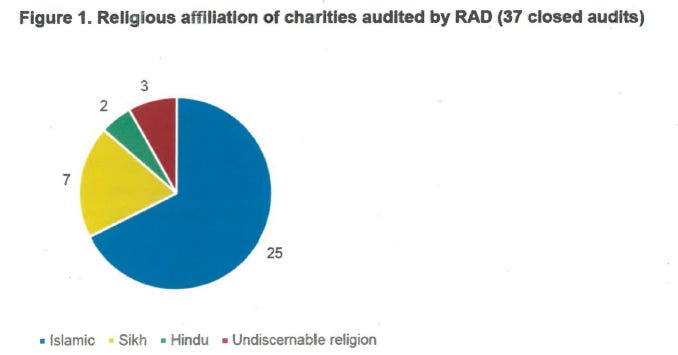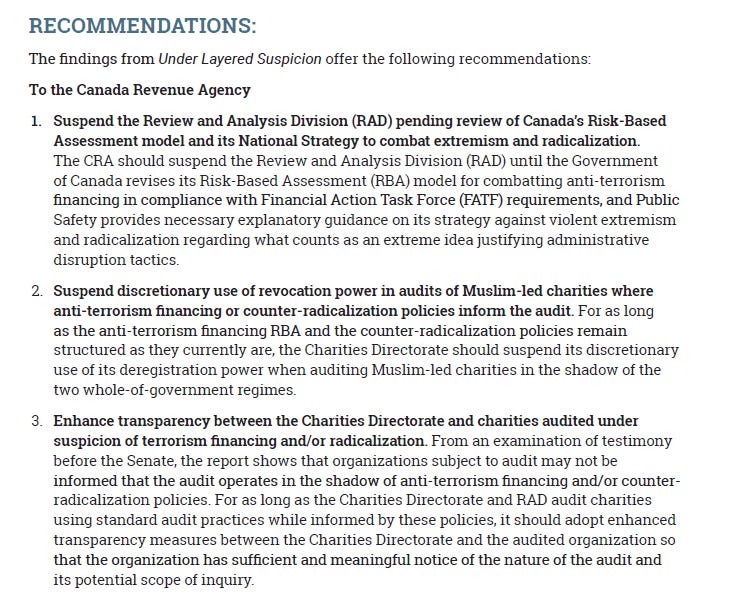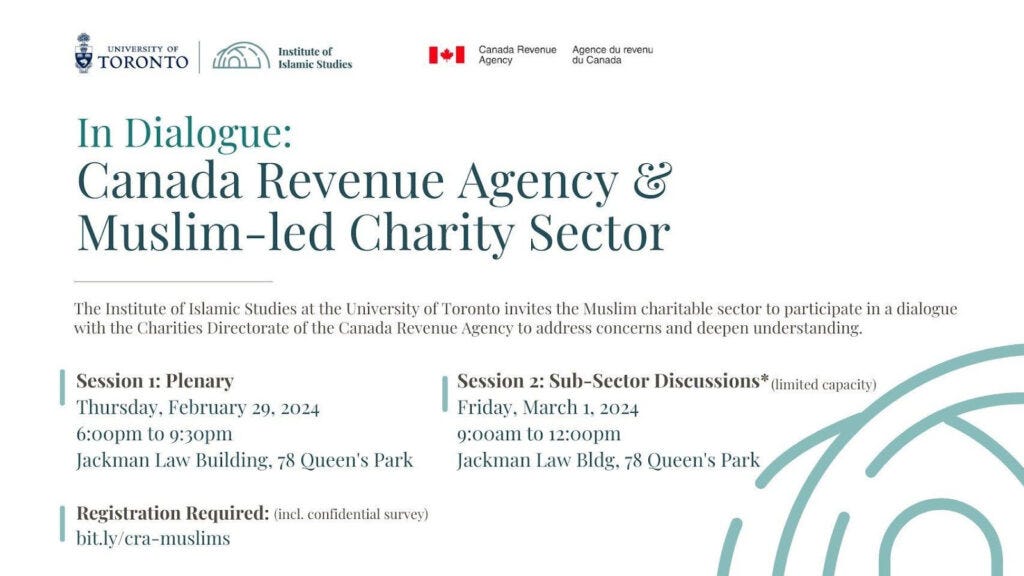Canada’s security watchdog recommends easing scrutiny on Muslim charities
Canada’s national security watchdog is facing criticism for allegedly advising the federal tax agency to reduce terrorism-financing audits of Muslim-led charities.
Canada’s national security watchdog is facing criticism for allegedly advising the federal tax agency to reduce terrorism-financing audits of Muslim-led charities. The recommendation comes from a two-year review by Canada’s security watchdog—the National Security and Intelligence Review Agency (NSIRA). The agency examined the Canada Revenue Agency’s Review and Analysis Division (RAD), which is the branch responsible for ensuring charities are not used to fund terrorism.
The report was released last month following complaints from Muslim-led organizations that claimed they were being unfairly targeted for audit. The review backgrounder stated that “most charities audited by RAD were Muslim or Sikh,” a pattern that “raised questions about whether RAD might be unfairly targeting these groups.”
The review also reported that “some charities were audited even though there was no clear risk of terrorist funding,” and it urged the CRA to collect demographic data about the charities it audits “to make sure the process is fair and transparent.”
Although the review stopped short of saying discrimination had occurred, it concluded that Canada’s anti-terrorism audit program carried “serious risks and gaps that need fixing.” Its recommendations included narrowing the CRA’s discretion to investigate and requiring a “clear, credible reason related to terrorist funding risks” before audits begin.
The agency’s conclusions echo arguments made in Under Layered Suspicion, a 2021 report by the University of Toronto’s Institute of Islamic Studies and the National Council of Canadian Muslims.
That study accused the government of “othering” Muslim charities and called for the suspension of the Review and Analysis Division, greater transparency in security-related audits, and an end to revocations of charitable status for Muslim organizations.
Hamas, formally designated as a terrorist entity by Canada, is not described as such in the report. “[P]olicy and academic researchers recognize that Hamas has a social and political / military wing,” is stated in a 5-page-long screed on the designated terrorist organization.
A 2023 Senate of Canada’s Standing Senate Committee on Human Rights Islamophobia report adopted similar conclusions. It said Muslim-led charities are “audited more frequently than others,” and called for “Independent review of CRA’s Review and Analysis Division,” recommending that “NSIRA undertake a review of this issue.” It also urged the government to combat “systemic Islamophobia” in national security agencies.
The National Security and Intelligence Review Agency launched its formal review in March 2023. A year later, the Canada Revenue Agency began participating in outreach efforts with Muslim charity leaders. The CRA’s Director General, Policy Director, and Assistant Commissioner met with Muslim-led charities at a closed-door conference organized by the Institute of Islamic Studies.
The institute said the meeting was a response to “long expressed concerns about targeting, selection, and audits” of Muslim-led charities, adding that “since the events of October 7, 2023, there is a return to post-9/11 suspicion of their activities.”
The Institute for the Study of Global Antisemitism and Policy have questioned the neutrality of some advocacy groups driving this debate. Their recent study on Muslim Brotherhood-aligned groups in Canada found that the National Council of Canadian Muslims “has been able to maintain a legitimate status in Canada despite its proven association with its parent organization, the Council on American-Islamic Relations (CAIR USA), a self-described Muslim Brotherhood front organization with established ties to Hamas.”
The National Security and Intelligence Review Agency’s conclusions, drawn partly from this network of activist research, suggest a policy shift toward minimizing perceived bias in enforcement. Its call to limit the CRA’s investigative discretion contrasts with the approach taken by other governments.
The United Kingdom’s 2015 Muslim Brotherhood Review labelled Brotherhood activity “contrary to our values and have been contrary to our national interests and our national security,” and France’s 2025 report on the movement described it as a threat to national cohesion. And in the U.S., lawmakers introduced bipartisan legislation in July aimed at designating the Muslim Brotherhood as a terrorist organization.








Need more evidence that Canada has fallen.
You just got some more.
Most of our government agencies and departments have been compromised by foreign agents, they are a threat to our country!